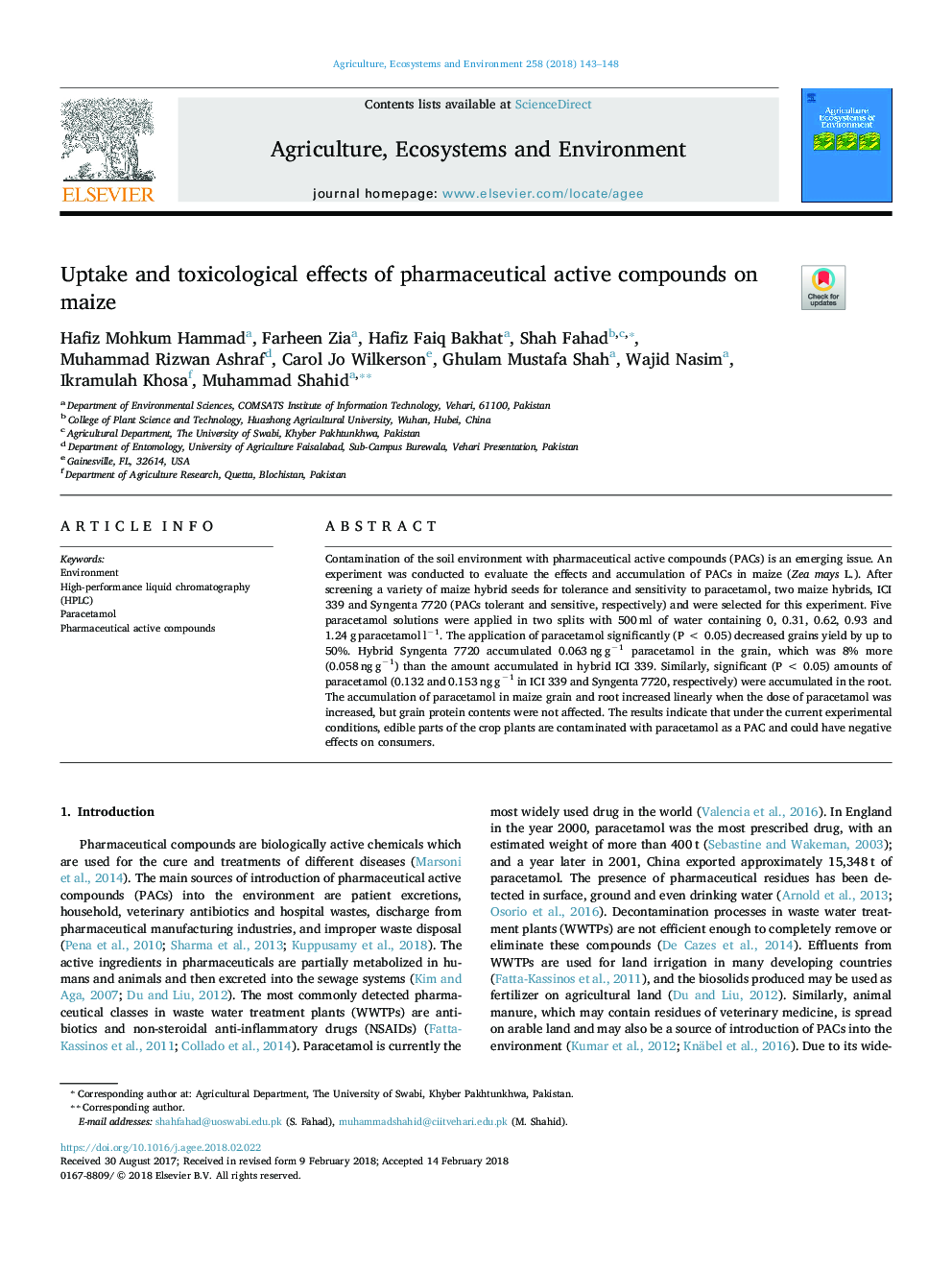| Article ID | Journal | Published Year | Pages | File Type |
|---|---|---|---|---|
| 8487123 | Agriculture, Ecosystems & Environment | 2018 | 6 Pages |
Abstract
Contamination of the soil environment with pharmaceutical active compounds (PACs) is an emerging issue. An experiment was conducted to evaluate the effects and accumulation of PACs in maize (Zea mays L.). After screening a variety of maize hybrid seeds for tolerance and sensitivity to paracetamol, two maize hybrids, ICI 339 and Syngenta 7720 (PACs tolerant and sensitive, respectively) and were selected for this experiment. Five paracetamol solutions were applied in two splits with 500â¯ml of water containing 0, 0.31, 0.62, 0.93 and 1.24â¯gâ¯paracetamolâ¯lâ1. The application of paracetamol significantly (Pâ¯<â¯0.05) decreased grains yield by up to 50%. Hybrid Syngenta 7720 accumulated 0.063â¯ngâ¯gâ1 paracetamol in the grain, which was 8% more (0.058â¯ngâ¯gâ1) than the amount accumulated in hybrid ICI 339. Similarly, significant (Pâ¯<â¯0.05) amounts of paracetamol (0.132 and 0.153â¯ngâ¯gâ1 in ICI 339 and Syngenta 7720, respectively) were accumulated in the root. The accumulation of paracetamol in maize grain and root increased linearly when the dose of paracetamol was increased, but grain protein contents were not affected. The results indicate that under the current experimental conditions, edible parts of the crop plants are contaminated with paracetamol as a PAC and could have negative effects on consumers.
Keywords
Related Topics
Life Sciences
Agricultural and Biological Sciences
Agronomy and Crop Science
Authors
Hafiz Mohkum Hammad, Farheen Zia, Hafiz Faiq Bakhat, Shah Fahad, Muhammad Rizwan Ashraf, Carol Jo Wilkerson, Ghulam Mustafa Shah, Wajid Nasim, Ikramulah Khosa, Muhammad Shahid,
